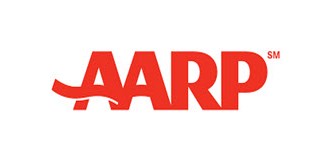The AARP has issued the first major research paper in the emerging field of managed long-term services and supports (LTSS) to address family caregiver needs. Their argument is that managed care can lead the way to advancing person and family-centered care. The report, the AARP states, provides the tools and policy recommendations to pave the way to such managed care initiatives.

The report began from the commissioned work of Truven Health Analytics to research state Medicaid contracts for requirements about care coordination and family caregivers, the results of which were published in a report titled Care Coordination in Manged Long-term Services and Supports. The research was shared with stakeholders who then asked for additional research activities that resulted in the publication of this report.
The entire report can be downloaded here: Family Caregivers and Managed Long-term Services and Supports Report
The report’s recommendations are as follows:
1. Managed LTSS programs should offer appropriate services that address the needs of family caregivers.
A key component of managed LTSS should be the identification and provision of supports to meet family caregivers’ needs and preferences. Involving the family in a meaningful and useful way also should improve the experience of care for both the person and the family and reduce costs. Services and supports should include family caregiver assessments for their own needs; supportive services such as training, support groups, family meetings, counseling, and respite care that are identified in the assessment; home modifications and assistive technologies; and other supportive services and transportation.
2. Health plans should recognize and involve family caregivers, especially when the care plan depends on them.
Family caregivers should be part of the care planning process upon consent of the member and agreement from the family caregiver. Care coordinators and family caregivers also should have each other’s contact information. States and plans should examine their assessments for members in Medicaid managed LTSS programs—and for those dually eligible for both Medicaid and Medicare—adding a component to assess family caregiver needs whenever the family caregiver is central to the plan of care. Assessing and addressing family caregivers’ unmet needs for information, education, and supportive services should be standard practice in all home- and community-based services programs that aim to help beneficiaries remain at home and in the community. All initiatives to assess and address caregivers should reflect multicultural and access needs because of the diversity of family caregivers. The assessment tools and data also should be publicly available.
3. Family caregivers’ feedback and involvement can help ensure better quality of care.
Input from family caregivers should be included in the evaluations of health plans, and health plan advisory councils should include family caregivers to inform them of the care experience. Evaluations
of the quality and access of LTSS should also include surveys of family caregivers, especially when the member depends on their care.

